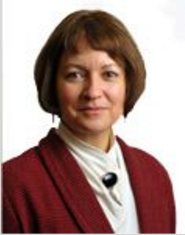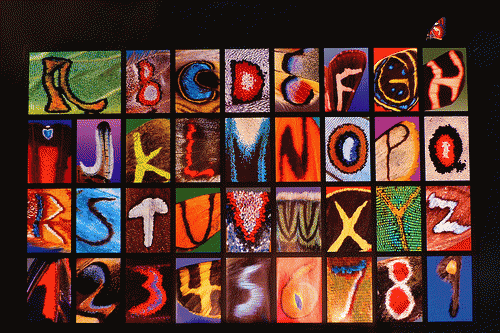First: Four Arrows, dear man, I don't think that you should put quotation marks around your term 'worldviews' in your subtitle. It just makes your title/subtitle more abstruse. And I haven't any problem with the word worldview at all. you are working with it in yer own way -- just be clear on that, and don't be swayed by my slight disagreement regarding rhetorical strategy. I'm glad your doin' what your doin,' even if I'm up to something a bit different! Viva la difference!
Regarding what i had to say (when you and I spoke) about what you call the dominant worldview being a kind of divergence, or contortion, within the animistic worldview, umm", I could never call it a "childish fascination" with magic, as you do just below. I meant only to be articulating something that I strongly believe, and that I wrote out in the very last footnote to The Spell of the Sensuous. (That footnote is kind of a skeleton key to the whole book.) As I wrote there:
"In contrast to a long-standing tendency of Western social science, this work has not attempted to provide a rational explanation of animistic beliefs and practices. On the contrary, it has presented an animistic or participatory account of rationality. It has suggested that civilized reason is sustained only by a deeply animistic engagement with our own signs. To tell the story in this manner -- to provide an animistic account of reason, rather than the other way around -- is to imply that animism is the wider and more inclusive term, and that oral, mimetic modes of experience still underlie, and support, all our literate and technological modes of reflection. When reflection's rootedness in such bodily, participatory modes of experience is entirely unacknowledged or unconscious, reflective reason becomes dysfunctional, unintentionally destroying the corporeal, sensuous world that sustains it.
-- from The Spell of the Sensuous, p. 303
To make crystal-clear what I meant in that passage, and also why I would never speak of writing or reading as a childish fascination, I would say that in my first book, The Spell of the Sensuous, I am hardly engaged in demeaning or denigrating the alphabet. To the contrary, I am arguing that the alphabet can best be understood as a new and uniquely powerful form of magic. Indeed I have tried to demonstrate that alphabetic literacy is an intensely concentrated form of animism, a synaesthetic participation so vivid that it readily eclipses all the other styles of participation, or magic, in which we humans once engaged. Hence The Spell of the Sensuous is not at all engaged in a put-down or a rejection of literacy; rather it suggests that alphabetic literacy should be recognized as an especially profound magic. For it is only by acknowledging its not-entirely-rational, world-altering power that we have a chance of wielding this power responsibly, rather than falling under its remarkable spell. (It is not, after all, by chance that the word "spell" has such a curious double-meaning: to cast a potent magic into the world, or to arrange the alphabetic letters in a correct manner. The Hebrews -- the very first culture of the alphabet -- never lost this awareness of writing as a particularly potent magic; much of the Kabbalah, the Jewish mystical tradition, is concerned with the numinous and unruly powers inherent in the written letters themselves).If, however, we simply take the alphabet for granted, regarding it merely as a neutral, mechanical technique for recording spoken utterance, then we readily fall prey to a host of delusions -- such as the assumption that meaningful speech is an exclusively human property; or a belief that the reflective mind is a wholly autonomous power, independent of the body and the earth; or the related faith that modern science will someday achieve a wholly objective representation of "what is."
All of these peculiarly Western presumptions stem from the extraordinary self-reflexivity made possible by the alphabet, from the ability it offers us to continuously converse with our own signs in the complete absence of other expressive beings, and hence to neglect and finally forget the myriad non-verbal forms of exchange by which we are steadily nourished and sustained by the more-than-human earth.
Yet while such forgetfulness is made possible by the alphabet, the alphabet does not necessitate or cause this oblivion. The Spell of the Sensuous itself, after all, is intended to display a very different manner of wielding alphabetic reason, and there have always been writers who wrote in service to the more-than-human earth -- from Goethe to Rilke, from John Muir to Jean Giono, from Willa Cather to Wendell Berry and Barbara Kingsolver. Phonetic writing was likely a necessary ingredient in our estrangement from the more-than-human world; but it is hardly a sufficient cause of our obliviousness"
The reason I bring up all this is just to indicate that, besides framing the matter as two different worldviews -- which is, I concede, a useful way of looking at it -- there are other ways of framing the contrast between the dominant worldview and indigenous ways of seeing and sensing and knowing. I always try to avoid the out and out binary logic that it seems to me characterizes so much of the dominant discourse (the dichotomizing propensity to frame everything as a choice between TWO things, one of them good and the other one crummy). I just don't trust that sorta logic, and I think it's destroying our world. (for example, we in the US see radical Islam as evil, and ourselves in cahoots with the Good, while the radical Islamists feel themselves as perfectly righteous, and us as inherently Evil. And there are countless other examples.) My strategy is often to nest one side of the so-called dichotomy within the other, to show that one is often a subset of the other, albeit sometimes a distorted subset -- a subset that has forgotten its dependence upon the wider set. That's what I'm up to above, by showing that the deadening, objectivizing worldview can itself be recognized as an intensely concentrated form of animism, or magic. It's also what I was up to when, disgusted by the poverty of our nomenclature, I got sick of writing about culture and nature as though these were two separate things, or writing of "human nature" and "non-human nature" as though these could still fall on two sides of a neat divide, and so I coined what was then a new phrase: "the more-than-human world" -- in order to indicate that the human world is always CONTAINED within the more-than-human world, yet that the more-than-human world always EXCEEDS the human world. (Although few of the many writers and thinkers who now use that phrase think it through, I do think that all that is entailed by the simple formulation "the more-than-human world")
Finally, to give a different example of how one can subvert the dichotomizing logic, toward the end of Becoming Animal I take up again the matter of writing, and literate culture. But now I am doing so by framing the contrast with oral culture as a matter of different layers of culture, which are also different layers of the breathing earth:
"...What should be obvious, now, is this: The globalizing culture of the internet, and the cosmopolitan culture of the book, both depend, for the integrity, upon the place-based conviviality of a thriving oral culture. Oral, storytelling culture -- and the vernacular intimacy with the local land that goes hand-in-hand with such culture -- is the forgotten ground that still supports these more abstract layers of culture. It is the neglected but necessary soil from whence civilization still draws its sustenance, the nourishing humus in which our humanity remains rooted.
When oral culture degrades, the mediated mind loses its bearings, forgetting its ongoing debt to the body and the breathing earth. Left to itself the literate mind, adrift in the play of signs, comes to view nature as a sign, or a complex of signs. It forgets that the land is not first and foremost an arcane text to be read, but a community of living, speaking beings to whom we are beholden. Adept at representing the world verbally, the literate intellect forgets how to orient in the midst of the world's presence, how to hear those many voices that do not speak in words.
Similarly the computerized mind, when left to its own devices, all too easily overlooks the solid things of the earth. Skilled in the rapid manipulation of symbols, it neglects the stones and the grasses that symbolize nothing other than themselves. Dazzled by its own virtual creations, the digital self forgets its dependence upon a world that it did not create, overlooking its carnal emplacement in the very world that created it.
When oral stories are no longer being told in the woods, or along the banks of meandering rivers -- when the land is no longer being honored ALOUD as an animate, expressive power -- then the human senses lose their attunement to the more-than-human terrain. Fewer and fewer people are able to feel the particular pulse of their place; many are no longer able to hear, much less respond to, the many-voiced eloquence of the land. Increasingly blind, increasingly deaf -- increasingly impervious to the sensuous world -- the technological mind progressively lays waste to the animate earth.
Today our vaunted civilization pours its by-products into the winds and into the waters. The weather tilts toward catastrophe; ice-caps melt; the snowpack evaporates; water fit for human consumption hides in smaller and smaller oases within the desert of the real. Ever more creatures wane and vanish from this non-virtual reality, unable to adapt to the wrenching changes we've wrought. Massive animals and small animals, hoofed ones and clawed ones, antlered and quilled and bright-feathered ones, finned and tentacled and barnacled ones all steadily dwindling down to a few members before they dissolve entirely into the fever-dreams of memory."
-- Becoming Animal, pp. 286-288
(Note: You can view every article as one long page if you sign up as an Advocate Member, or higher).






